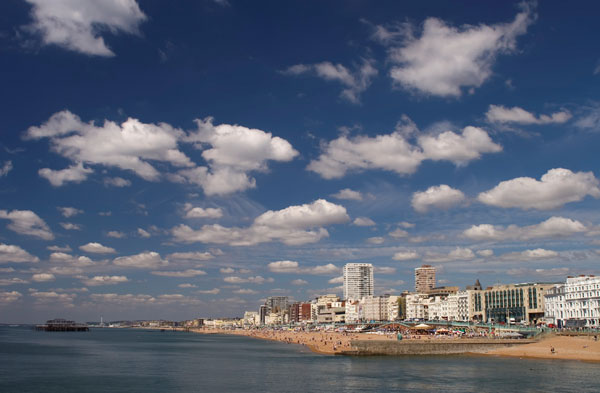Latest News: Frank le Duc

How should we value volunteering? In Brighton and Hove it could be worth £127m to the local economy
Charities, voluntary organisations and community groups are saving taxpayers money and attracting grants worth millions of pounds to Brighton and Hove. The city’s third sector has an estimated income of about £73 million a year, employs 6,900 people and contributes about £127 million to the local economy. A new report says: “Many of the useful outcomes of the sector can’t easily be translated into financial figures.”
But those financial figures are among the substantial findings of a year-long economic and social audit carried out by Brighton and Hove Community Works, formerly the Community and Voluntary Sector Forum. The research project has been supported by Brighton University, Brighton and Hove City Council, Brighton and Hove Clinical Commissioning Group (CCG) and the Brighton-based Oxford Consultants for Social Inclusion (OCSI).
The findings are included in a report called Taking Account 3 which is due out this week. The research is carried out every five years and includes case studies as well as the fundamental facts and figures. Last week Laura Williams, the representation and partnerships manager at Community Works, shared some of the headlines with an audience of the local great and good. She gave a presentation to Brighton and Hove Connected, formerly the Local Strategic Partnership, at the Jury’s Inn by Brighton Station.
The research identified about 2,300 third-sector organisations in Brighton and Hove. More than 200 of those groups completed a survey as part of the project. Almost one in 12 had been started in the past four years. Some classed themselves as social enterprises. Most aimed to empower people to improve the quality of their lives or bring people together. They provide activities, support, information, advice and guidance particularly for those needing health and wellbeing services or for children and young people.
Strong partnership working was a plus. The case studies found that the work of the third sector was often innovative. Budgets were frequently tight and future income uncertain. But, as the old proverb goes, necessity is the mother of invention. The report, though, is not an unmitigated exercise in mutual back-slapping and self-congratulation. There is an awareness of a need to understand unit costs better to improve efficiency and to find ways to measure value for money.
“Many of the useful outcomes of the sector can’t easily be translated into financial figures”
This will become more important as councils and other public bodies provide fewer services themselves and commission more from private companies, charities and other outside organisations. The report says: “The shift from grants to contracts and the opportunity and challenges for the sector that exist within this are multiple.”
In essence though, some third-sector organisations which are run by well-meaning amateurs, may find themselves having to operate far more professionally.
The switch to contracts brings obligations. And Laura Williams noted that the current economic climate had presented challenges to both the public sector and the third sector. “It has,” she added, “also put a strain at times on the third sector’s independent voice.” She didn’t mention the Lobbying Bill, referred to by critics as the “Gagging Bill”. But the potential restrictions to freedom of speech contained in the bill have been the subject of criticism by others who were present, such as experienced charity executive Ian Chisnall.
The report says: “The third sector is facing a challenging turning point.” One organisation described it not as a settlement but as an unsettlement. But what does seem settled is that thousands of people in Brighton and Hove are prepared to volunteer for good causes and give their time for free. Several thousand individuals give more than five million hours a year. Some provide governance. Some provide the services and care and advice which are the reason for the existence of a particular organisation. And others raise money. Some do two or all three things.
Some of the bigger organisations, such as Brighton Housing Trust (BHT), Blind Veterans UK, formerly St Dunstan’s, and Crime Reduction Initiatives (CRI) are good at winning contracts and attracting grants and donations. They have brought large sums of money into the area. But it’s not all about the money. These groups not only help those they serve but those they employ and they give their volunteers a sense of purpose. It’s not just an act of charity.





















